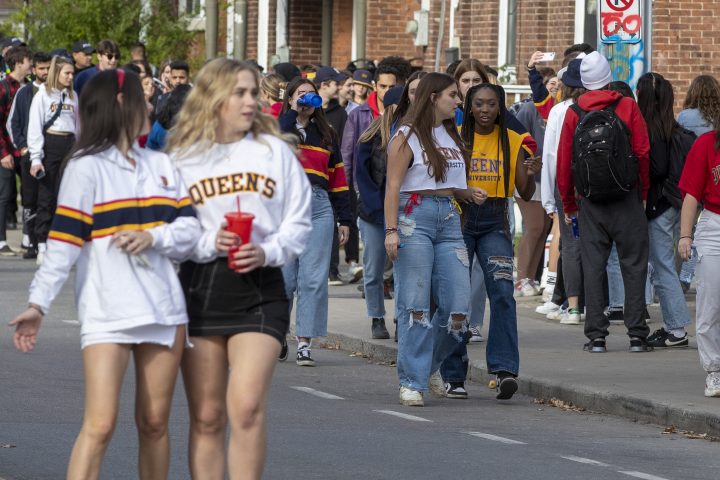TORONTO — Student leaders say excitement is high as Ontario universities prepare to host the first frosh weeks, largely in-person and absent of public health restrictions, since the COVID-19 pandemic began.

But they say sexual assault prevention and awareness remains top of mind after last year’s disturbing allegations tied to Western University’s orientation week.
Student union presidents say tickets to frosh events sold out quickly this year as eager first-year students, who spent part of the last two years learning online, transition to post-secondary life.
“I think people are just very eager to have this opportunity again,” said Omar Gharbiyeh, president of University of Toronto Students’ Union, which hosts campus-wide orientation events.
Along with incoming students, Gharbiyeh said he expected second and third-year students who missed out on the full in-person orientation experience to join the festivities.
He said the union distributed 1,000 tickets in less than two hours to Tuesday’s orientation concert featuring DJ duo Loud Luxury. Engagement with social media posts about orientation events has also been high, he said.
But a year after Western University’s frosh week ended with a mass walkout in the wake of multiple sexual assault allegations and claims of toxic campus culture, student leaders say additional supports and training are a key part of their orientation plans.
The University of Toronto student union says it partnered with a team of about a dozen people from an on-campus, survivor-led sexual violence support group who will attend all orientation events.
“People are just becoming aware of the dangers that have always existed and we’re committed to making sure that we protect students from that as much as possible,” Gharbiyeh said.
Western University, meanwhile, committed to a full re-evaluation of its orientation week after releasing two reviews into the school’s culture in May.
This year the London, Ont., university’s orientation week will see “care hubs” set up around campus with mental health and gender-based violence supports, said Cameron Cawston, vice-president of student support and programming with Western University Students’ Council.
As a former orientation leader, Cawston said the student response last year was “eye opening.”
“Being able to transition into this role, I really feel like I have the opportunity and voice for change, and being able to see it firsthand has definitely fueled so many of the changes that we’re going to see this year,” she said.
Orientation leaders received an expanded, paid two-week training this year, she said. Meanwhile, students in residence are now required to complete sexual assault training before coming to campus, with more workshops in-person.
Events will also start no earlier than 11 a.m. and end by 11 p.m., the university said.
But “what happened at Western last year is not a problem unique to Western,” said University of Ottawa Students’ Union president Armaan Singh.
A 2018 survey of more than 160,000 Ontario post-secondary students found nearly one-in-four reported they had been sexually assaulted since the start of the academic year.
Of those, 40 per cent said the sexual assault took place either just before fall semester began or in the first six weeks of classes, the Council of Ontario Universities’ survey reported.
One of the first events of “101 week”, the University of Ottawa’s orientation week, is a mandatory consent workshop, Singh said.
“We’re trying to educate our 101-ers on what consent culture looks like and how to not facilitate an environment that is conducive to rape culture,” he said.
Tickets to different frosh events have been in high demand this year, Singh said, but some COVID-19 safety concerns remain.
“There is that huge enthusiasm, but I don’t think that we should overlook the strong concerns that disabled student leaders and immunocompromised student leaders have in their advocacy in returning to campus,” he said.
The student union has pushed the University of Ottawa administration to implement its own mandatory mask mandate and extend online class options.
Singh said frosh attendees will be strongly encouraged to mask up indoors and keep their vaccinations up-to-date. Some events will also be held as hybrid events or live-streamed, he said.



Comments